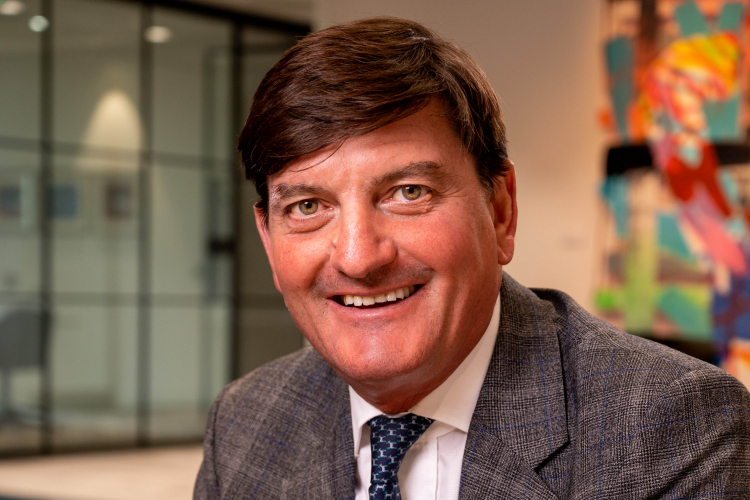David Howden: Let’s get smart on insurance intervention on climate change

Attracting capital, utilising parametric insurance and working with disaster relief organisations can make a real impact in providing funding and support after catastrophic climate events, according to David Howden, Founder and CEO of Howden Group.
To mark the fast-growing broker joining Airmic as a partner, David took part in a wide-ranging 30-minute video interview with the Association’s CEO Julia Graham in which he discussed the 22-year journey of the business to date, his priorities in the UK market and how risk and insurance professionals are grappling with the huge challenges presented by war in Ukraine, the pandemic, inflation and the climate crisis.
David spoke at COP26 in Glasgow in November and returned to the theme towards the end of the interview to passionately make the case for greater involvement of the insurance market in addressing the needs of communities already feeling the impact of climate change.
“So often climate change is affecting those people and those countries that can least afford to protect themselves, insure themselves and get themselves back on their feet,” he said.
“It’s already a £20 billion gap and that gap is being met, generally, by amazing disaster relief agencies around the world. But they are more and more challenged now in how they find the money for it. Of course, the more humanitarian disasters we’ve got, the more challenging it is.
“What I am trying to say is ‘come on, let’s get smart’. We understand risk, we understand how to attract capital in. How can we harness our expertise in insurance along with attracting capital to what’s already a huge gap?
“We have done this in a number of cases now. Working with the International Red Cross, using parametric insurance and we’re working on about 30 projects at the moment, where we’re linking capital with actual insurance. It is something that is really proving insurance can be a force for good.
“What we are finding is a number of foundations who might have originally just given their money directly to help with disaster relief, are recognising the value of both risk management and insurance to provide certainty for disaster agencies.”
At the start of the discussion, David provides some context to how and why he established the brokerage in 1994 and its evolution into a significant player in the corporate account space.
Reflecting on how the business began and how it has changed as it has grown into a multinational private company that, if listed, could take a place in the FTSE 100, David makes the case that the original philosophy remains in place.
“We’ve come a huge way in those 28 years, and yet really not very much has changed,” he began. “Those founding principles that we had of building a business for the long term – 3,000 of our colleagues now having equity in the business today, having a business that is very people and client focused, building a business with real simplicity in it around attracting the best talent and then really focusing that talent.
“We want to be the biggest small business in the world, so we’ve really got that empowerment and employee ownership. We’ve held onto that, despite having a business of real scale.”
